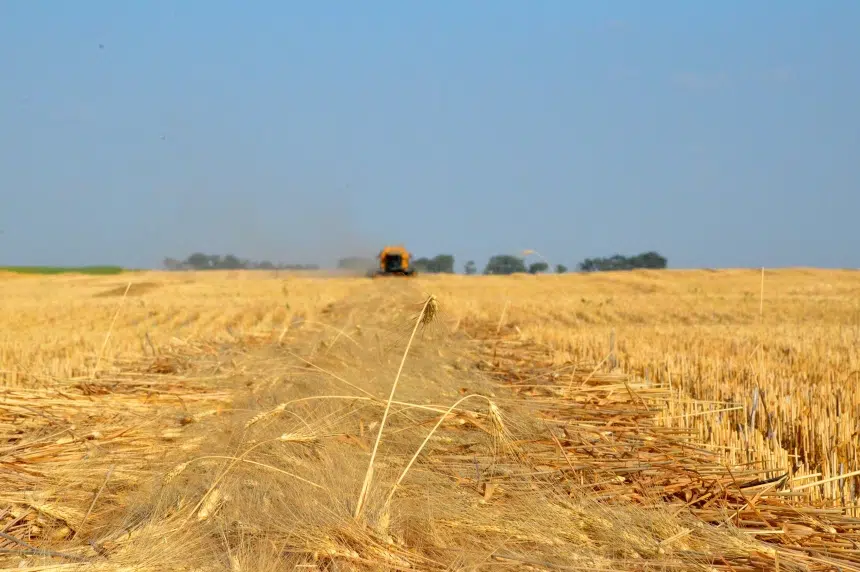It’s no secret that it’s been a frustrating harvest for many Saskatchewan farmers. A late start due to poor weather, and weeks of wet conditions are taking their toll.
Steve Donald farms in the Moosomin area. He said they missed a full week of being in the field because there has been between 10 and 12 inches of rain in the area this past month.
They can’t drive the heavy machinery onto the wet fields.
“Now we’ve got about an inch-and-a-half to two inches of rain in the forecast, starting tomorrow (Tuesday) night again,” Donald said.
The most recent crop report showed Saskatchewan producers are 18 per cent complete. The five-year average for this time of year is 43 per cent.
Donald said they’re only at 10 per cent, and the moisture is not only keeping them off the field, but also hurting quality.
“The quality is definitely gone in the grain. It’s going down, so we might have to change some ideas. We’ll have to start swathing instead of straight cutting,” said Donald.
He says the stress level is high and farmers in many areas really need to have the weather turn around before it’s too late.
“I need sun and a breeze to make the ground dry out. Last night (Sunday) we had to quit early because the moisture was coming up into the plants because the ground is too wet. We can’t even go very late even though we want to. The straw just doesn’t cut or chop,” said Donald.
“It would be good for people to just be a little bit more understanding.”
Donald said because they are so behind, when they need to get moving on the field, they have to get as much done as possible. That means more harvest machinery on the roads. He is pleading with drivers to be patient, because they have so much to catch up on.
“When we live in this area — when you live in a rural area — the farmers are a huge economic spin-off to the community. It would be good to have people just be a little bit more understanding if you have to slow down to 20 mph for a quarter of a mile, and then once the machine pulls off the road it isn’t a big deal,” Donald said.
Donald adds, when farmers are on the highway, it’s usually just to go from field to field.











